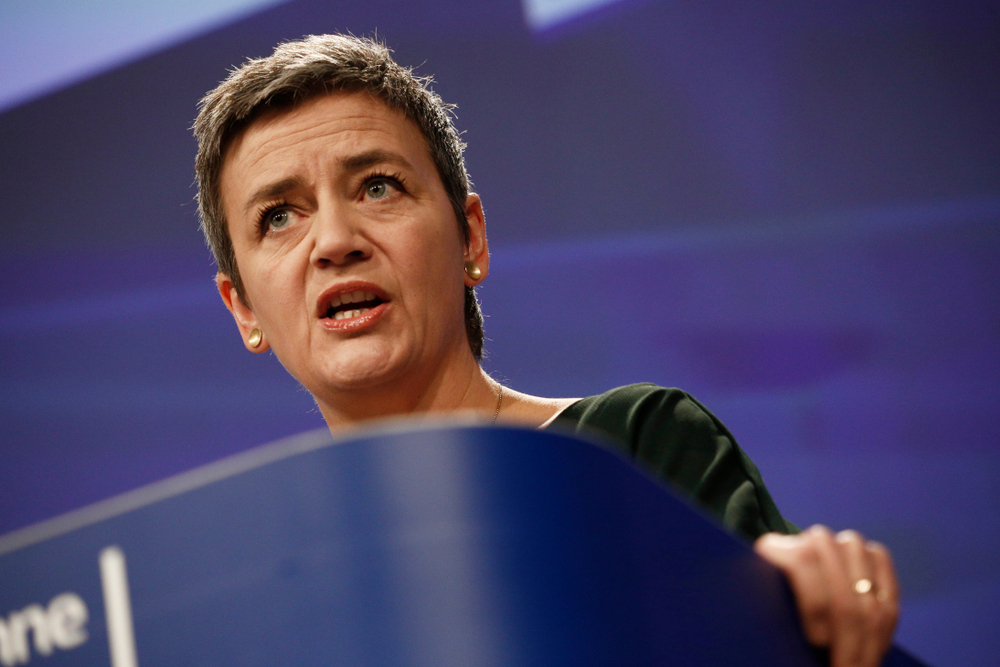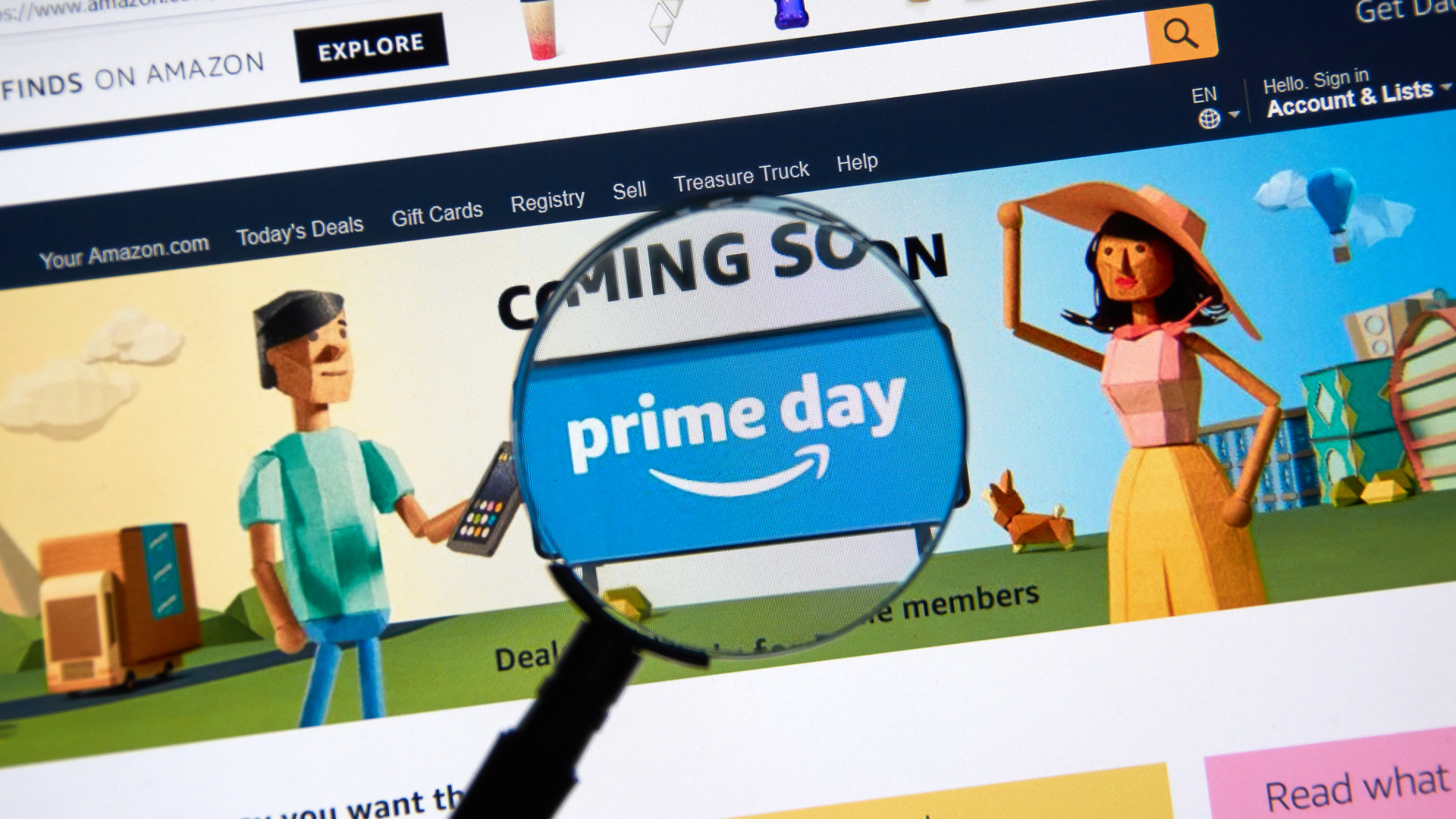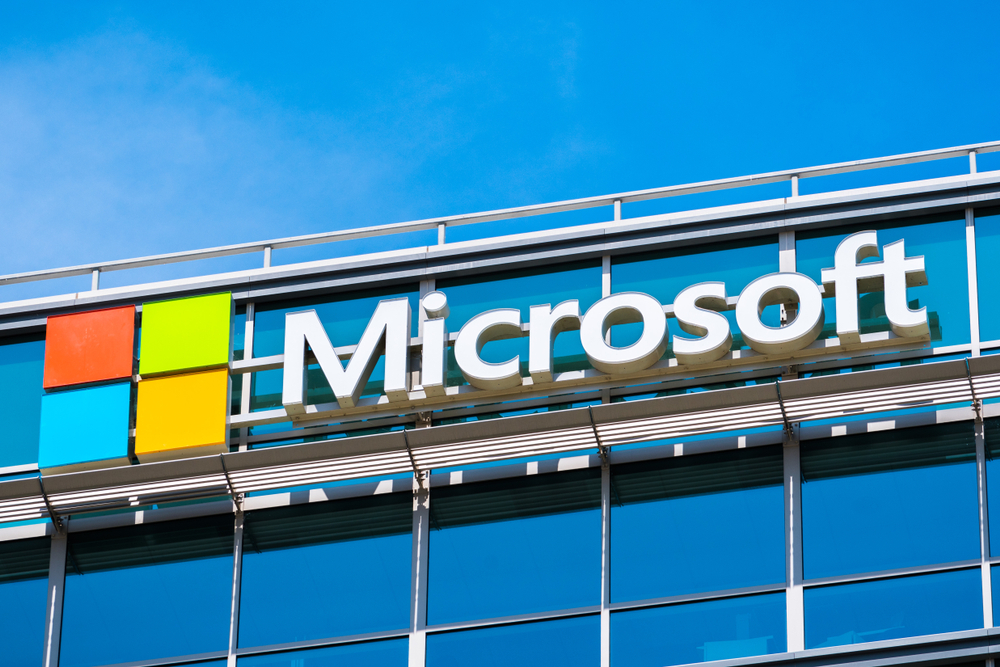Google hit with €1.49bn fine for antitrust violations
European Competition Commissioner says Google abused its market dominance with restrictions on its AdSense platform


The European Competition Commissioner has issued a €1.49 billion fine to Google for restrictions within its AdSense platform.
Commissioner Margrethe Vestager announced the action during a press conference on Wednesday, which is the third financial penalty the regulator has placed on the tech giant.
"Today the commission has decided to fine Google €1.49 billion for breaking EU antitrust rules," she said. "Google has engaged in illegal practices when it comes to its search advertising programme in order to cement its dominant market position.
The third penalty revolves around advertising and specifically, Google's AdSense platform. When you type in a query into Google's search engine, you not only get the results, you also get ads that are based on the words that you typed in. This sort of advertising is one of Google's main sources of revenue.
However, the Commission has taken issue with Google's business of brokering advertising space on other sites where other websites like news outlets, blogs, or travel sites will all include a search box. These 'search' boxes allow the owners of those sites to make money in much the same way Google does on its own site by selling advertising space in the search results. These other sites rely on an advertising broker and the Commission believes that Google is by far the biggest of those brokers.
"This market is an important market because it's an entry point for competitors, including other search providers for online advertising platforms," Vestager said. "By gaining a foothold in advertising brokering they can then grow their business and try to challenge Google in the general search advertising business."
Challenging Google is some feat as its market share in Europe has been well above 70% since 2006. And there are high barriers to entry too, which makes it hard for competitors to come in.
Get the ITPro daily newsletter
Sign up today and you will receive a free copy of our Future Focus 2025 report - the leading guidance on AI, cybersecurity and other IT challenges as per 700+ senior executives
The Commission said that despite that, competition should be possible in this market because different websites can use different brokers, and actually, the same website can use more than one broker to provide different ads.
"Today's decision is about how Google abused its dominance to stop websites using brokers other than the AdSense platform," she explained. "For the most important websites, which Google calls direct partners, Google provides brokering services, through tailored agreements.
"Our investigation looked at more than 200 of those agreements, and they all contained at least one type of restriction that harmed competition. These different types of restrictions often overlapped at different times."
The first type of clause is an exclusivity provision which Google began to include in its contracts from 2006. It meant that the most commercially important partners were prevented from sourcing search ads from Google's rivals from any of their websites.
The second type is called premium placement, which Google began including in its contracts from 2009, to replace the existing explicit exclusivity provisions. These clauses didn't completely stop direct partners from sourcing ads from Google's rivals, but the Commission said that they meant that direct partners would have to take a minimum amount of search ads from Google and put them in the most visible and profitable parts of the page. Meaning the best webpage space, where users were most likely to click, was still reserved for Google.
The third and final type of restriction, allowed Google to control how websites displayed the search ads of its rivals. Under this clause, website owners would have to get the written approval from Google before changing the way it displayed search ads of rivals. Right down to the size, the colour and even the font of those ads.
Vestager said that Google benefited from a network effect and became even stronger and that the fine reflected the serious and sustained nature of Google's behaviour.
On Tuesday the company finally addressed the anti-competition ruling for Android by announcing that existing Android phone users and future users will be offered a wide choice of browsers and search engines. Vestagar said it is was "welcome that Google is stepping up its effort".
Bobby Hellard is ITPro's Reviews Editor and has worked on CloudPro and ChannelPro since 2018. In his time at ITPro, Bobby has covered stories for all the major technology companies, such as Apple, Microsoft, Amazon and Facebook, and regularly attends industry-leading events such as AWS Re:Invent and Google Cloud Next.
Bobby mainly covers hardware reviews, but you will also recognize him as the face of many of our video reviews of laptops and smartphones.
-
 Should AI PCs be part of your next hardware refresh?
Should AI PCs be part of your next hardware refresh?AI PCs are fast becoming a business staple and a surefire way to future-proof your business
By Bobby Hellard
-
 Westcon-Comstor and Vectra AI launch brace of new channel initiatives
Westcon-Comstor and Vectra AI launch brace of new channel initiativesNews Westcon-Comstor and Vectra AI have announced the launch of two new channel growth initiatives focused on the managed security service provider (MSSP) space and AWS Marketplace.
By Daniel Todd
-
 Governance, risk, and compliance is a major growth opportunity, but how will the market develop?
Governance, risk, and compliance is a major growth opportunity, but how will the market develop?Industry Insights As DORA, NIS2, and AI regulations shake up the compliance landscape, GRC could be a golden opportunity for the channel
By George Bonser
-
 Digital transformation & risk for dummies
Digital transformation & risk for dummiesWhitepaper Understand the risks to your digital business and accelerate your digital transformation
By ITPro
-
 Food and beverage traceability
Food and beverage traceabilityWhitepaper Understanding food and beverage manufacturing compliance and traceability
By ITPro
-
 Ensuring compliance with the National Bioengineered Food Disclosure Standard (NBFDS)
Ensuring compliance with the National Bioengineered Food Disclosure Standard (NBFDS)Whitepaper How food manufacturers can enhance traceability with technology to be compliant
By ITPro
-
 US antitrust bill nearing law faces fierce tech opposition
US antitrust bill nearing law faces fierce tech oppositionNews AICO seeks to limit the extent to which tech platforms can self-promote, and has drawn tens of millions of dollars in opposition from some of the largest tech firms
By Rory Bathgate
-
 Amazon's use of third-party seller data to be investigated by CMA
Amazon's use of third-party seller data to be investigated by CMANews The investigation follows an almost identical one currently being carried out by the European Commission after the company was previously charged over similar practices by the European authority in 2020
By Connor Jones
-
 Nine steps to IT audit readiness
Nine steps to IT audit readinessWhitepaper How technology can help win back your time and reduce IT risk
By ITPro
-
 Microsoft Purview rebrand aims to simplify data governance and compliance
Microsoft Purview rebrand aims to simplify data governance and complianceNews Tech giant merges 365 and Azure Purview data-governance services into a unified suite
By Bobby Hellard